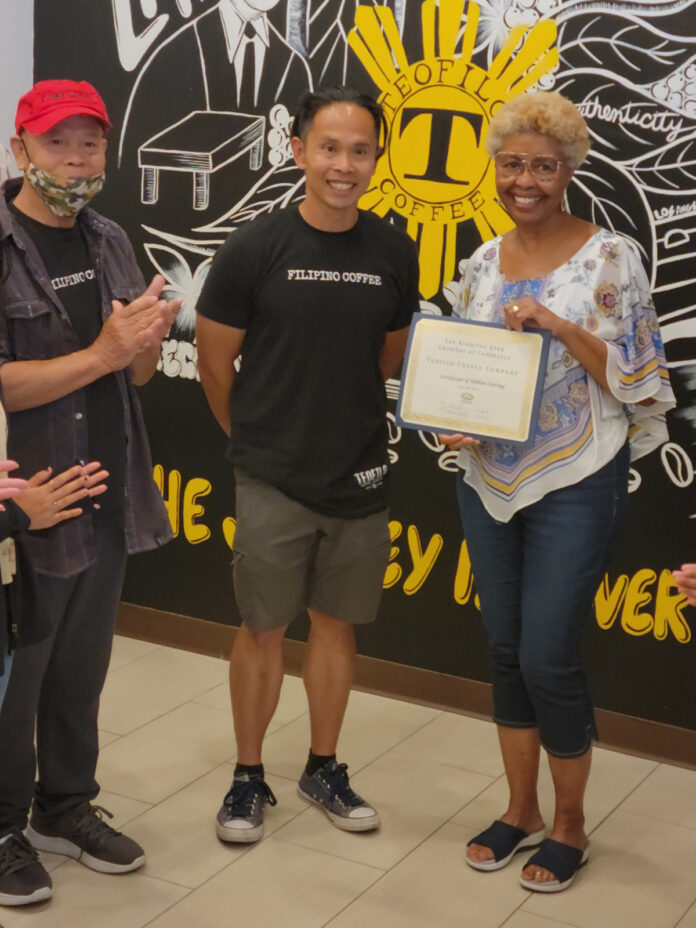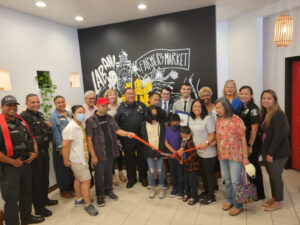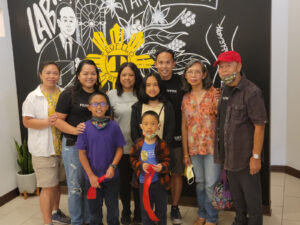
(As told by Ron Dizon)
“Teofilo is my tatang’s (grandfather’s) name, and my name is Ron Dizon, his grandson.
“Our story began with a dinner napkin,” Dizon shared. “I remember when my mom sparked a conversation about coffee from the Philippines – wait – coffee from the Philippines?
That was 2017, the moment that turned into an obsession to figure out why and how, and that’s when my curiosity hit the gas pedal and all I could think about was finding what Filipino Coffee was all about.”

Dizon said he spent late nights researching and learning about the one crop that resides in the Philippines and in the midst of researching, he was introduced to the Aeropress, which changed how he felt about coffee.”Let me tell you, this is something you have to experience for yourself,” he said.
Dizon said there was something about the discovery process that shifted his attitude as a Filipino-American.
“My parents brought me to the United States when I was four-years-old. Though I grew up in a Filipino household, it was heavily influenced by the American lifestyle,” he explained. “I used to feel embarrassed being part of the ‘Filipino things and innuendos;’ however, in maturing, I’ve learned a lot from that upbringing. In being part of the generation of Filipino-Americans, the obsession of Filipino Coffee turned into a passion that made me want to give back to the Philippines.”
Dizon explained that the Philippines used to be a well-known worldwide coffee supplier during the early 1900s. “Let’s remind ourselves that coffee is the ‘number two’ commodity in the world,” he continued. “This recognition drastically took a turn when ‘coffee-rust’ decimated nearly all of the coffee bean farmland.”
Going on to explain more about coffee beans, Dizon said, “Compared to other countries, there are four-species that exist in the 7,000-plus islands of mostly volcanic rock in the Philippines, which include Arabica, Robusta, Excelsa and Liberica,” he said. “Most countries just have Arabica.”
Starting out, they began roasting their Filipino coffee beans at the Farmers Markets; however, currently they use a Fluid-Bed Clean Hot Air Roaster to roast all of their coffees, in order to offer the cleanest and most efficient roasting.

“The roaster, which is approximately six-feet-tall and is the width of a wooden cargo pallet, was always with us at the Farmers Markets. We enjoyed sharing the process with the people. Along with the Markets, we also served our coffee at different pop-ups during catering, and other private and public events.”
Dizon said he never thought he would be getting into the coffee nor roasting business; however, here he is with a complete understanding that it would-be and is a challenge. “It took a lot of discipline and mental preparation to be ready for where we are now.”
He said running their own business in Los Alamitos, has propelled their plan forward for putting Filipino coffee back on the map.
“Now I can drink coffee black,” my Tito (Uncle) said, when I served him Filipino coffee the other day. Dizon said that’s the expression they want from everyone. “We’re very passionate about this because it’s the quality that created the name for coffee from the Philippines in the first place.”
Their goal is to keep coffee in its purest form, and they love encouraging and emphasizing the ability to experience moments like those.
“Anything is possible if you set your mind to it.”
Teofilo Coffee Company Los Alamitos, CA 90720 – Menu, 51 Reviews and Photos – Restaurantji
All photos by Loreen Berlin